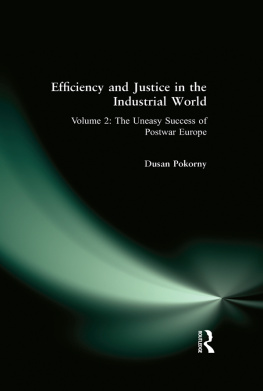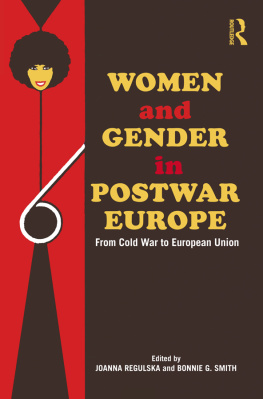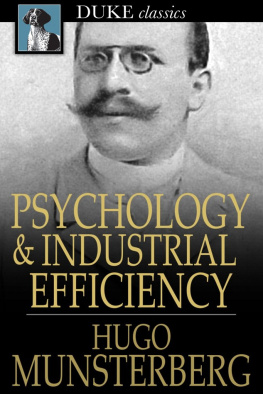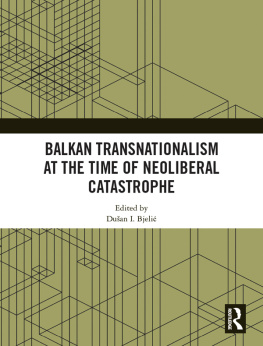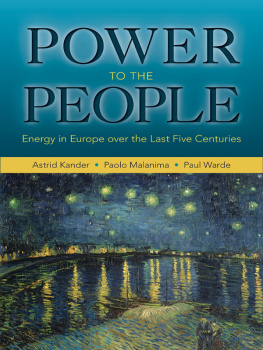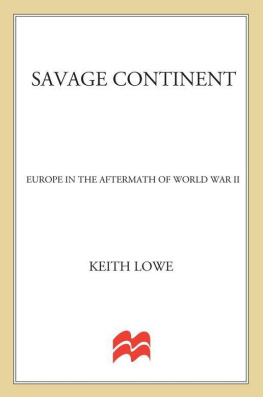EFFICIENCY and JUSTICE in the INDUSTRIAL WORLD
VOLUME 2
The UNEASY SUCCESS OF POSTWAR EUROPE
European economic integration was originally seen as the way to overcome national enmities in the wake of World War II. Over time, it acquired the purpose of social melioration as well. Today, the advanced market societies are richer than they have ever been, yet each is riven by social and economic divisions as some groups thrive while others lose ground. The tension between the social demand for equity and security, and the markets drive to burst the bonds of state regulation both internally and at the border post, has taken on new complexity. It is this issue that underlies domestic political struggles over privatization, safety-net programs, immigration policies, and trade agreements.
Will the European Union survive the stresses of high unemployment and the strains of German unification? These are some of the questions Dusan Pokorn considers in this second volume of his exploration of the efficiency-justice conundrum.
This erudite book is part of a wider inquiry into the relations between society, economy, culture, and the market. A skillful and witty blend of history, philosophy, and current affairs reminiscent of Polanyis The Great Transformation.Choice (on Vol. I)
EFFICIENCY and JUSTICE in the INDUSTRIAL WORLD
VOLUME 2
The UNEASY SUCCESS of POSTWAR EUROPE
DUAN POKORN
First published 1997 by M.E. Sharpe
Published 2015 by Routledge
2 Park Square, Milton Park, Abingdon, Oxon, OX14 4RN
711 Third Avenue, New York, NY 10017, USA
Routledge is an imprint of the Taylor & Francis Group, an informa business
Copyright 1997, Taylor & Francis. All rights reserved.
No part of this book may be reprinted or reproduced or utilised in any form or by any electronic, mechanical, or other means, now known or hereafter invented, including photocopying and recording, or in any information storage or retrieval system, without permission in writing from the publishers.
Notices
No responsibility is assumed by the publisher for any injury and/or damage to persons or property as a matter of products liability, negligence or otherwise, or from any use of operation of any methods, products, instructions or ideas contained in the material herein.
Practitioners and researchers must always rely on their own experience and knowledge in evaluating and using any information, methods, compounds, or experiments described herein. In using such information or methods they should be mindful of their own safety and the safety of others, including parties for whom they have a professional responsibility.
Product or corporate names may be trademarks or registered trademarks, and are used only for identification and explanation without intent to infringe.
Library of Congress Cataloging-in-Publication Data
Pokom, Duan 1919
Efficiency and justice in the industrial world / Pokom, Duan
p. cm.
Includes bibliographical references.
Contents: v. 2. The Uneasy Success of Postwar Europe
ISBN 1563247720
HC335.P487 1993
338.947dc20
9241002
CIP
ISBN 13: 9781563247729 (hbk)
To the memory of my mother,
Anna, ne Severin
The aim by itself is a lifeless universal,
just as the guiding tendency is a mere drive
that as yet lacks an actual existence;
and the bare result is the corpse
which left the guiding tendency behind it.
G. W. F. Hegel
CONTENTS
The main theme of this study is the relation between society and economy, culture and market, shared social norms and strategies of unilateral behavior.
In the first volume (Efficiency and Justice in the Industrial World: The Failure of the Soviet Experiment, 1993), we witnessed the dissolution of the Soviet Unions multinational economy that had been integrated by means of directive planning. In this, the second volume, attention turns to the European Unionto transborder market integration mediated politically.
In the East, the momentous turnabout in the economic spherethe projected passage from central directive planning to a market-based systemcalled for collateral moves in the adjoining areas. A society of nomenclaturas and subordinates was to be transformed into a civil society and an unabashed dictatorship into a political order that respects the principles of democracy. Yet the technocratic approach prevalent in designing and implementing the reforms became one of the main reasons for a drastic decline in living standards: since 1989, real wages in Russia fell by 36 percent. Disenchantment with economic reforms led to distrust of the political process that had been put in place. In the parliamentary elections of December 1995, authoritarians of the left and the right gained far more votes than democratically oriented reformers.
In the West, the market system had been the economys mainstay for centuries. Underlying the formation of the European Economic Community in the late 1950s were political goals: paramount was the aim to lay economic foundations for peace among countries that had in the past too often waged wars against one another. More than three decades later, the Common Market was ushered in under the banner of efficiency-stability-equity, the last term implying commitment to more than just the rationality of the market place. But the aftermath of Germanys reunification taxed the Communitys cohesion politically as well as socially. And continued high unemploymentaround 10 percent of the labor forceled to demands that Employment Union be added to the stated objective of the Economic, Monetary, and Political Union. In short, the message was that public acceptance of economic integration would in the end depend on the Unions contribution to the social goals presumed to underlie die joint undertaking.
The framework of the discussion to follow remains the same as that of the preceding one. To fit the matter now on hand, though, the main planks of the project will have to be recast.
(a) Under the heading of property relations, I shall consider the genesis and the nature of the juridical persons called corporations; privatization of state-owned enterprises; and mergers as well as acquisitions, which typically occur within the private sector but may include companies that are partly in public ownership.
(b) Efficiency and equity will stand for the complex of relations between production of wealth, its market-based distribution, and its state-mediated redistribution. The frame of reference for this part of the inquiry will again be the contradistinction between two conceptions of practical reason: unilateral maximization of utility and profitin the domain of which coordination of individual actions is left to anonymous marketsand collective determination of the societys interest by persons engaged in free discourses in both the public and the political space.
(c) Finally, nation will be understood to invite an inquiry into the meaning of sovereignty as applied to the national state; into the relation between the member state and the regional authority to which the former surrenders some of its prerogatives; and into the relations of both the national state and the regional authority to the world beyond.
I am grateful to David Nowlan for comments bearing on the economic side of the study. My thanks are due to Alkis Kontos for suggestions on the treatment of several issues in political philosophy. Richard Day read the drafts with the sharp pen of an editor and the sharp eye of a theorist; his help was invaluable, and I am deeply thankful for it. I am obliged to Andr Gauron, the French economist and author, for fresh insights into the complexities of Western Europes attitude toward unemployment. MM. J. Hodes and A. Dramais of Eurostat, Brussels, went out of their way to give me early access to their data and forecasts. To Patricia Kolb of M.E. Sharpe I am again indebted for understanding and advice.


